I have a clob variable, need to assign it to varchar2 variable. The data inside clob var is less than 4000 (i..e varchar2's maxsize) oracle10+
I tried
report_len := length(report_clob);
report := TO_CHAR(dbms_lob.substr(report_clob, report_len, 1 ));
report_clob := null;
but it turns report into long value which I see while debugging. Also when I call this sql (proc) from my C# code. It complains saying buffer too small, because I send parameter as per varchar, but the above conversion might be turning it into long value.
I even tried direct assignment
report_clob := report
getting the same result.
EDIT
Ok, to answer the questions below please see: I debug using test script in PL/SQL developer. report variable is varchar2(4000). When I step after 2nd line. report shows to be a long value and it just says (Long Value) . cant even see the contents.
report and report_clob are out variable from the procedure. This procedure is called from C# code.
There is an exception string buffer too small in C# when I call this procedure. I have given 5000 as size of report variable in C# sufficient to receive 4000 max characters value from the procedure. So I guess problem doesn't lie there.
And when I assign report:= 'some string....' then C# call works fine.
So my investigation says that report := transform (report_clob) is making report become long value or some such thing (weird) which makes C# code problematic to handle larger value in 5000 varchar out parameter.
Any more detail I will be happy to provide.
